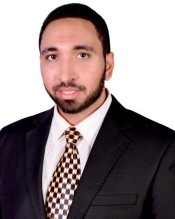Pediatric Nephrology Fellowship Program
Eligibility & Selection
Applicants must be U.S. citizens, permanent residents or hold a J1 or an H1B visa. Graduates of 3 year ACGME accredited pediatric residency programs or their equivalent are eligible. Fellows are selected primarily on the basis of likely success in an academic career in Pediatric Nephrology.
Selected applicants are invited for interviews to meet our faculty, fellows, and staff. All interviews will be conducted through virtual platforms this year.
How to Apply
We appreciate your interest in the University of Minnesota’s Pediatric Nephrology Fellowship Program.
To be considered by the fellowship selection committee, please apply through ERAS (Electronic Residency Application Service). ERAS is an internet-based application process developed by the Association of American Medical Colleges (AAMC) to transmit fellowship applications to the program. Applicants must meet our eligibility criteria and submit the required documents:
- 3 letters of recommendation from members of your faculty
- Personal statement
- USMLE transcript
- CV
- ECFMG certificate (if applicable)
- Medical School Transcript
The Pediatric Nephrology Fellowship Program at the University of Minnesota participates in the National Resident Matching Program (NRMP) Pediatric Specialties Fall Match. For additional information about the Match, please go to www.nrmp.org.
Curriculum
First year: In the first year, trainees perform clinical service in all divisional inpatient and outpatient activities under the direction of supervising attending faculty. Fellows will rotate through at least 6 months of inpatient experience including the care of children with all conditions managed by pediatric nephrologists including acute and chronic dialysis and kidney transplantation. Inpatient experience occurs at both at a freestanding academic tertiary hospital and at a community children's hospital in order to provide a wide breadth of consultative experience. Fellows will participate in an outpatient continuity clinic weekly where they will develop their own panel of patients to follow throughout their training, including longitudinal care of chronic dialysis patients. Training to perform percutaneous biopsies will be provided. Didactic teaching will occur weekly in the Division of Pediatric Nephrology. Additional time will be spent during the first year exploring research opportunities and developing a research plan for the remainder of the fellowship
Second and third year: An additional 6 months of inpatient experience will be spread throughout the second and third years of fellowship to refine and enhance clinical training. The remainder of the rime during these years will be spent in research activity, either basic science or clinical research. Fellows will have the opportunity to learn every aspect of research including clinical study design, preparation of institutional review board applications, patient enrollment and/or data extraction, statistical analysis, and writing for publication. Fellows will be expected to submit and present their work at a national nephrology meeting such as the American Society of Pediatric Nephrology or American Society of Nephrology meeting. Clinical schedules can be adjusted to accommodate pursuit of a Masters in Clinical Research through the School of Public Health.
Research
Research opportunities: The division of Pediatric Nephrology at the University of Minnesota is heavily involved in research. Fellows have the opportunity to perform research utilizing the Alport Syndrome Treatments and Outcomes Registry (ASTOR), the largest registry of children and adults with Alport syndrome in the US. Fellows also have the opportunity to perform research using the University of Minnesota solid organ transplant registry. Fellows have access to USRDS and SRTR national databases for population level studies
The University of Minnesota in an active participant in a number of multicenter collaborative studies. These studies include, but are not limited to, the CureGlomerulopathy study (a longitudinal cohort study of children and adults with glomerular disease), the Improving Renal Outcomes Collaborative (IROC) (a quality improvement project for children with CKD and post kidney transplant), the Standard Care to Improve Outcomes in Pediatric Endstage Renal Disease (SCOPE) collaborative (a quality improvement project to prevent dialysis associated infections), and NAPRTCS (a prospective registry of pediatric kidney transplant recipients). The University of Minnesota also participates in the Pediatric Nephrology Research Consortium (PNRC), a collaborative nephrology research network. Fellows will have the opportunity to participate in these studies under the mentorship of our faculty.
Additional research opportunities are available in collaboration with rheumatology, urology, epidemiology, hematology/oncology, adult nephrology, and other divisions within the medical school depending on a fellow's interests.
Stipend & Benefits
This page provides access to information on stipends and benefits for medical residents & fellows.
Additionally, each medical fellow receives:
- Funding of the ABP General Pediatrics Certifying Exam
- At least $1,500 for professional development
- At least $300 annually in education funds
- MN medical license, or MN residency permit if ineligible for a MN license
- AAP membership with subspecialty section membership

Omar Mostafa, MBBCh
mosta048@umn.edu
Fellowship Dates: 2024 - 2027
Dr. Mostafa graduated from Assiut University Faculty of Medicine in Egypt. He trained at Sidra Medicine in Doha, Qatar.
Emily Zangla, DO
Fellowship Dates: 2021-2024
Contact Us
Fellowship Program Director
Sarah Kizilbash, MBBS
Assistant Professor
kizil010@umn.edu
Placeholder
Fellowship Coordinator
Gina Finical
finical@umn.edu
(612) 625-3255
For more information on our other medical fellowship programs, click here.